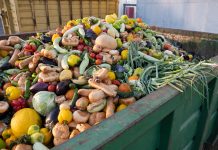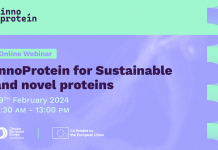As pressure grows from consumers and political groups for more sustainable products and reduced environmental footprints, Raj Tugnait, CEO of Meadow outlines why more companies need to put sustainability at the core of their growth strategies
As a leading ingredient business, we’re increasingly being asked by customers about the sustainability of our products, how we can reduce CO2 in their supply chains and ensure we’re aligned with achieving net zero targets.
Continued pressure on industries to reduce their CO2
The challenges are most acute in the dairy industry, which is under sustained pressure to do more to reduce the levels of CO2 produced in the production of many of the most popular products. But like the products produced, it’s equally important that the business producing them also operates sustainably for the long-term security and benefit of employees.
As a business, we identified ‘sustainability’ as a commercial opportunity. An opportunity to differentiate ourselves from our competitors by setting leading standards in reducing CO2 and mapping out a definitive road to achieving net zero across all operations by 2050.
As one of the largest milk purchasers in the UK, we felt it was important not to just impose our will on our farming partners but to work with them on the journey, sharing the mutual benefits that can be achieved.
Sharing best sustainable practices across networks
Our farm liaison team is now working with 400+ UK farmers to support them in building and running stronger businesses through hands-on advice on sustainable, resilient, and efficient farming practices. Best practices are shared across the network to help others further reduce their carbon footprints.
We also set targets to provide the lowest carbon footprint and the most sustainable ingredients in the UK’s dairy and plant based sectors. These are challenging ambitions, however, as pressures continue to grow, we believe more businesses will be pushed into compliance which is why we’re protecting our producers and customers by taking them on the journey with us now.
The UK already has some of the strictest policies on sustainability including the UK Agricultural Reform, the National Food Strategy and Government Food and Health Strategy. However, Meadow is looking to lead the sector by setting the standards through decarbonisation and providing support for customers to meet their own objectives.
The milk Meadow uses in its dairy ingredients already has lower CO2 emissions per litre than global and UK averages. We believe this offers us a strategic commercial advantage by being able to provide even more sustainable ingredients to our world-class food manufacturing customers, who are also under pressure to accelerate their own sustainability initiatives.
The roadmap to net zero
The company’s roadmap to net zero incorporates all business operations and seeks to reduce carbon emissions and develop a resilient and sustainable supply chain while recognising the company’s responsibility for both social and environmental sustainability. It’s also critical that any strategy is underpinned by appropriate governance that is both lawful and facilitates the company’s sustainability objectives.
Having a clear ‘Sustainability Roadmap’ provides businesses with a strong pathway to achieving their ambitions. Our own milestones include a further 10% reduction in farm emissions and a move to all animal feed being sourced sustainably by 2025.
The same rigour needs to be applied across all supply lines, and as such, Meadow aims to have its ingredients responsibly sourced and deforestation-free.
As a manufacturer we are aiming to reduce our own food waste from manufacturing facilities and to ensure our procured ingredients are responsibly sourced and that human rights assessments on all suppliers are completed.
2030: A sustainable and attainable future?
By 2030 we want to achieve net zero on all operational sites and to utilise sustainable packaging on all products. By 2035, we aim to achieve a 50% reduction in Scope 3 emissions in our supply chain and, with these blocks in place, to be fully net zero by 2050.
It’s clear that the sustainability agenda is here to stay and that businesses should act now to meet these challenges head-on. In doing so in a sustainable and measured way, companies can not only deliver on their commitments but help customers and suppliers meet their own goals too.
This piece was written and provided by Raj Tugnait, CEO of Meadow, a leading ingredients business that partners with the world’s biggest food manufacturers to solve their most complex challenges.














